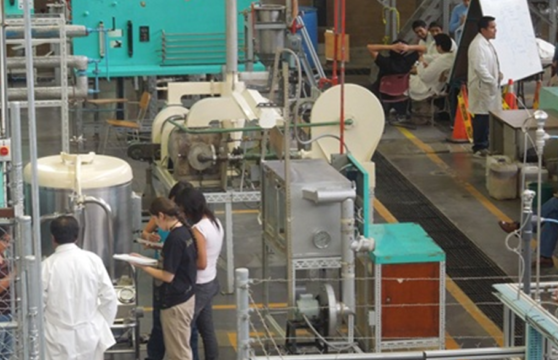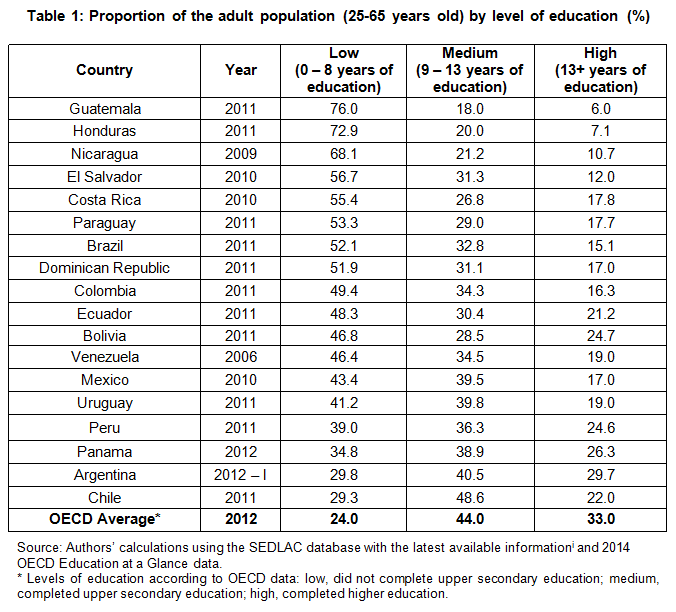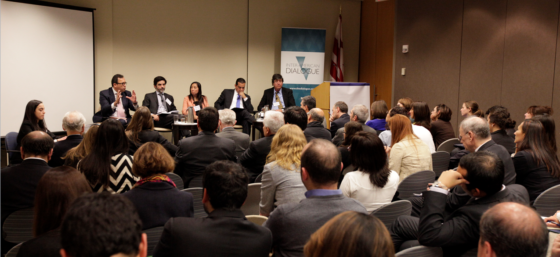
Where is all the Professional Talent in Latin America?
Latin America leads the world in talent shortages, and that the problem is getting worse
This post is also available in: Spanish
This blog post marks the beginning of a joint project between CAF – Development Bank of Latin America and the Inter-American Dialogue to develop better technical education and professional training policies in Latin America. The project aims to review the international evidence on skills development and competency training in an effort to adapt and disseminate best practices in the region. It also seeks to identify the main challenges and explore opportunities for reform. This initiative builds off of findings from the seminar “Latin America’s Productivity Challenge”, organized by CAF and the Dialogue in early 2015.
Traditionally, Latin America has had very low secondary education graduation rates when compared to more developed countries, and the region’s workforce has also had low levels of educational achievement. Table 1 shows the share of adults in each country in the region with low, medium, and high levels of education. The data shows that in all countries (except Argentina, Chile and Panama) individuals with the lowest levels of education comprise the largest share of the adult population.

In this context, both Latin American workers and employers wonder how they can maximize their professional growth and increase their productivity. At the same time, governments are exploring how to invest efficiently in human capital development. What are examples of models that make secondary education effective, providing the necessary skills to land a job? What are current technical and professional post-secondary programs missing? What potential do apprenticeships have for their participants to develop skills and competencies? How important are socio-emotional skills and to what extent are they being developed? How can we take advantage of online instruction and other new technologies? These are only some of the questions raised by the discussion around supply and demand of skills and competencies in the region.
The current state of Latin America’s labor market presents opportunities for innovation in skills development systems. For example, many workers with college degrees are underemployed as a result of an oversupply of graduates with non-technical degrees and a shortage of graduates with advanced technical training. This, together with the strong presence of informal employment[ii], offers opportunities for redesigning technical education and professional training in the region. The development of workers’ skills and competencies through formal qualification programs, aligned with employers’ needs, is a key element in the sustainable development of Latin America.
This project aims to build a network of experts and stakeholders in Latin America interested in sharing their ideas and experiences on this topic, with the goal of advancing an agenda of knowledge-sharing and innovation that can be effectively implemented according to each country’s needs. Specifically, the initiative will include a series of publications (reports, policy briefs, and blog posts), events, and online seminars that will facilitate the discussion of best practices and policy recommendations.
[i] For more information about each country, visit: https://sedlac.econo.unlp.edu.ar/eng/methodology.php
[ii] Klaus F. Zimmermann et al., “Youth Unemployment and Vocational Training,” Foundations and Trends® in Microeconomics, 9, no. 1–2 (2013): 1–157, doi:10.1561/0700000058.
Latin America leads the world in talent shortages, and that the problem is getting worse
Why expenditure on education in Latin America has not translated into higher productivity levels.
As a principal exporter of grains, Latin America has a critical role to play in addressing global food insecurity.

